Why America’s battles over Trump aren’t the crises they seem
Love him or hate him, Trump’s chaos reveals democracy’s stubborn strength. US academic Fei-Ling Wang tells us more.
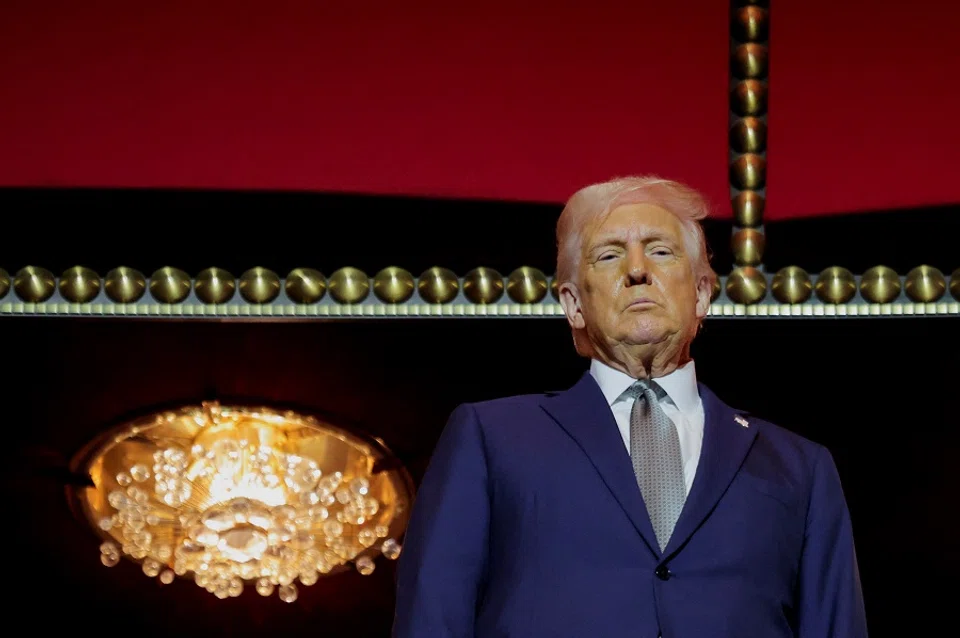
In over 200 years of US political history, Donald Trump is only the second US president to serve two non-consecutive terms. When he was sworn in, he was about 160 days older than his predecessor Joe Biden was when inaugurated, making Trump the oldest US president in history. In the two months since the elderly president took office, he has shown remarkable energy and an active mind, with a series of unconventional, unpredictable, and even shocking words and actions that have captivated the world. One might say it seems there is no limit to the shock factor that he brings.
Consequently, rumours and conspiracy theories abound, suggesting that he is senile, mentally unstable, being manipulated by others with malicious intent, or even a longtime Russian spy.
A sign of things to come?
In early March, in a formal joint address to Congress, Trump half-jokingly declared himself the most successful president, surpassing even the founding father and first US president George Washington. He even styled himself “the king” on social media Truth Social, which was later circulated by state media.
Citing divine will and a public mandate, Trump and Vice-President JD Vance are forcefully steering US society and the Western world in a direction they deem righteous. To achieve the tangible, material objective of domestic tax cuts, Trump has appointed the world’s richest man, Elon Musk, to take an aggressive, unconventional approach by slashing spending in the only area that he can: the federal government.
Internationally, he has engaged in tariff wars, war of words, and even made statements about annexing allied nations, while simultaneously insisting that he is friends with the leaders of China and Russia, despite maintaining sanctions and increasing tariffs against both countries. His dramatic pressure on Ukrainian President Volodymyr Zelenskyy to agree to a ceasefire was particularly jaw-dropping.
Consequently, rumours and conspiracy theories abound, suggesting that he is senile, mentally unstable, being manipulated by others with malicious intent, or even a longtime Russian spy. Even Hollywood screenwriters would be hard-pressed to come up with a script as dramatic as the opening act of Trump 2.0.
Trump’s Chinese-language support base
Trump’s supporters, the so-called “Trump fans” (川粉), still firmly believe that he is divinely chosen and widely supported by the people. They enthusiastically follow and cheer his stormy rhetoric and policies, believing that his tax cuts, government downsizing, anti-corruption, anti-leftist stance, and return to traditional values will lead to a revitalised and stronger America — one that will, in turn, guide the world back onto the right path.
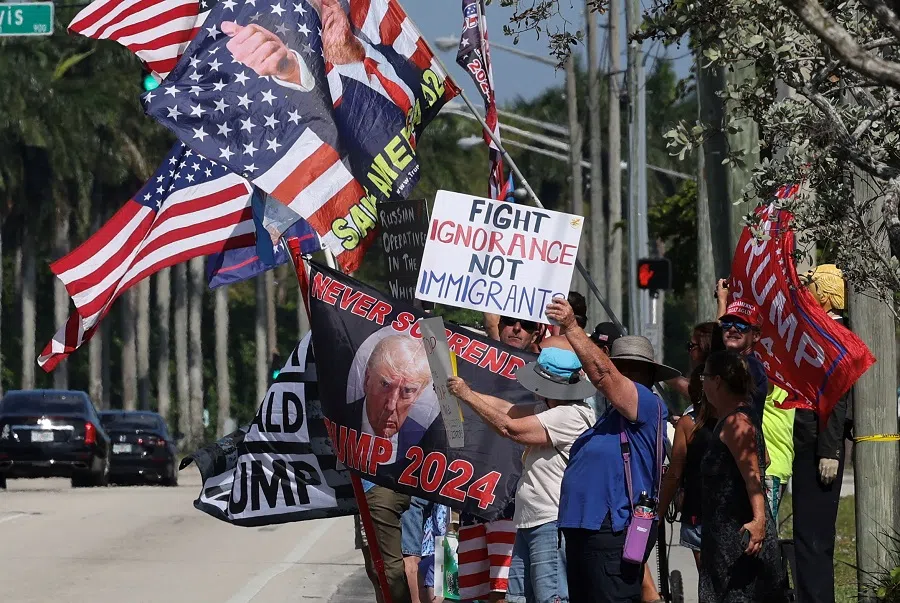
In the parts of the world that use simplified Chinese, many believe that Trump’s tough stance on crime and illegal immigration, as well as his opposition to affirmative action and so-called “lazy parasites” will benefit the law-abiding, hardworking, capable and competitive Asians, especially ethnic Chinese.
Interestingly, many Chinese political exiles, such as Falun Gong followers and so-called pro-democracy activists, find themselves strangely aligned with the pro-China, pro-Chinese Communist Party “50 Cent Army” (五毛, referring to internet commenters who are said to be paid fifty cents per propagandist post by China’s authorities) in their support of Trump.
The latter group think they have it all figured out, and that Trump’s reckless rhetoric, chaotic behaviour, Cultural Revolution-style rebellion, and senseless conflicts with allies will inevitably weaken or even destroy the US, paving the way for “the rise of the East and the decline of the West” (东升西降).
For the former group, Trump is seen as a bold, decisive, and hard-hitting anti-communist leader. Even if his grand geopolitical strategy appears complex and difficult to decipher, they believe it is ultimately aimed at accelerating political change in China, so whatever he does is justified.
The latter group think they have it all figured out, and that Trump’s reckless rhetoric, chaotic behaviour, Cultural Revolution-style rebellion, and senseless conflicts with allies will inevitably weaken or even destroy the US, paving the way for “the rise of the East and the decline of the West” (东升西降).
On Chinese-language social media, pro-Trump voices are so loud and almost unanimous, that some bloggers in China think that all Chinese Americans support Trump, with some saying things like: “If I lived in the US, I would support Trump too.” However, in reality, at the 2024 US presidential election, Asian Americans who voted for Trump remained a clear minority as always, at only around 35% (compared to about 30% in 2020). The increase was most noticeable among Chinese Americans, whose support for Trump rose from 27% to 39%, though they remained a minority (53% of Chinese Americans voted for Kamala Harris) — possibly thanks to the particularly vociferous Trump fans in Chinese-speaking circles.
Indeed, many of the most persuasive pro-Trump narratives, as well as baseless rumours — such as those about “zero-dollar shopping” (零元购, referring to organised retail crime, resulting in significant financial losses for consumers) and “Black Lives Matter” (黑命贵, referring to the social movement that fights racism and police brutality against African Americans) — seem to circulate primarily within Chinese-language circles, especially among simplified Chinese users.
Trump’s haters and fans
Trump’s opponents, often referred to as “Trump haters” or “anti-Trumpers” (川黑), are also a sizeable and vocal group, growing increasingly alarmed and outraged over the past two months. They argue that Trump is neither a populist political outsider nor a truly successful businessman, let alone a wise leader. Instead, they see him as a deeply narcissistic talk-show performer with a mix of inferiority and superiority complexes — someone long shunned by America’s elite circles, yet who, by a twist of fate, managed to hijack the country under the banner of populism.
Having been impeached twice by Congress — though never convicted—Trump has also been found guilty in both civil and criminal cases. To his critics, this makes him someone who belongs in prison rather than the White House.
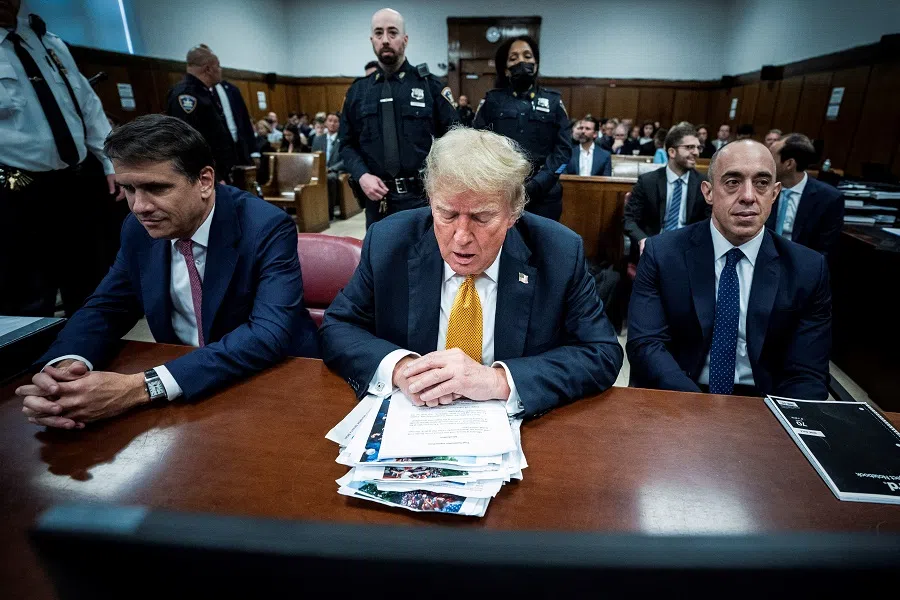
Anti-Trumpers believe he is a master of empty rhetoric, indifferent to facts, devoid of logic, and shamelessly reckless, motivated solely by self-interest: evading legal troubles, enriching himself through tax loopholes, and indulging in his own egotistical entertainment.
While he successfully masquerades as a champion of the working class, they argue he is actually a puppet of the ultra-wealthy and far-right conservatives, exploiting xenophobia, racism, and misogyny within American society. In their view, his words and actions pose a grave threat to the country’s moral standards, social stability, global reputation, and the very foundation of democratic rule of law.
He possesses both the shrewdness and guile of a businessman seasoned by decades in business, yet he also exhibits a certain childlike superficiality and vanity.
Both sides likely to be disappointed
Trump supporters and haters have vastly different views on Trump, especially regarding his actions and their consequences. Their divide is so deep that they seem to be at complete odds, like fire and water. However, they actually share many commonalities. What they cheer for and what they despise both revolve around Trump’s disregard for norms, his unconventional approach, and his tendency to just do his own thing — attempting to govern the country as an authoritarian business executive whose word is law. Their hopes and fears appear exaggerated and overly intense, and it looks like both sides are likely to be deeply disappointed.
On closer scrutiny, Trump has always been a free-spirited liberal elite from Manhattan. His personal lifestyle and cultural values are at odds with many conservative traditions in America. He possesses both the shrewdness and guile of a businessman seasoned by decades in business, yet he also exhibits a certain childlike superficiality and vanity.
He often sets his own standards based on his personal feelings and never lets go of grudges, yet at the same time, he is unconventional and willing to experiment and innovate. He may well be the only US president who was previously a Democrat, joined a third party, and ultimately became a Republican. His social circle is both broad and ever-changing.
His tax and spending policies clearly favour the middle and upper classes, particularly the ultra-wealthy, yet his rhetoric and posturing attract disillusioned grassroots citizens and low-income voters — including the so-called “redneck” rural population — who see him as a saviour.
Despite his extensive international connections and experience — two of his three wives were European immigrants — he presents himself as an isolationist, willing to break ties with allies while negotiating deals with rivals, often pursuing a go-it-alone diplomatic strategy. The sheer incredulity of all this and the many explanations need not be recounted here.
Are things as bad as they look?
Trump’s unprecedented electoral success and the massive shockwaves it created suggest that in America’s diverse and ever-evolving society and political landscape, many issues and grievances have accumulated since the beginning of this century — some requiring urgent attention, some having been overcorrected, and others now in need of recalibration.
... as long as these clashes and shifts do not fundamentally damage the constitutional framework, the lively — even bizarre — spectacle of Trump 2.0 is merely a demonstration of the vitality and resilience of America’s old yet “least flawed” political system.
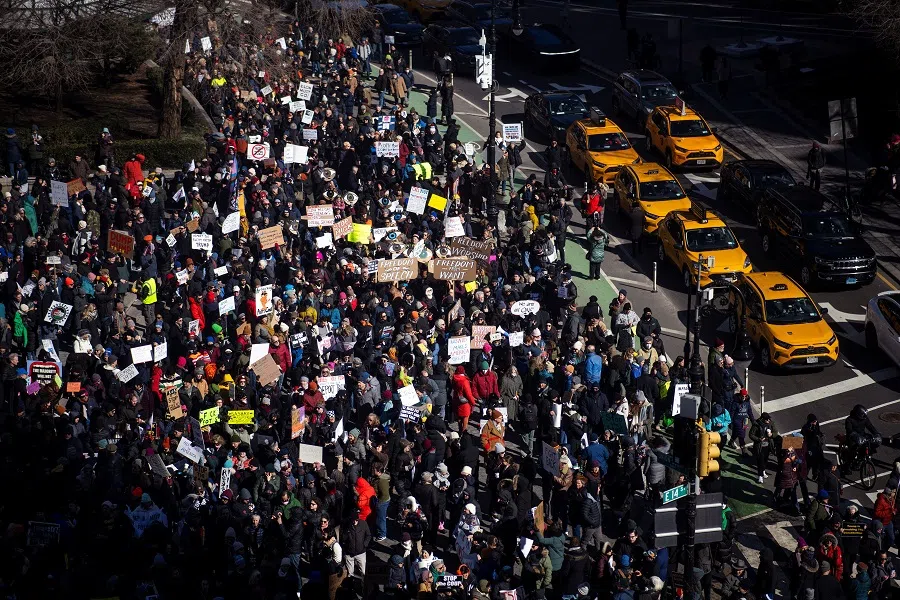
Unlike many Trump opponents, I believe that the constant swings and struggles in American politics are both historically deep-rooted and entirely natural. As long as the opposition can continue to resist and counterbalance, and as long as these clashes and shifts do not fundamentally damage the constitutional framework, the lively — even bizarre — spectacle of Trump 2.0 is merely a demonstration of the vitality and resilience of America’s old yet “least flawed” political system.
Likewise, unlike many Trump supporters, I do not believe that America is in a dire crisis, desperately awaiting a saviour. Whether viewed in comparison to other nations or in the context of its own historical trajectory, the US remains steadily advancing, prosperous, powerful, and globally dominant. As for “political correctness” and the much-debated DEI (Diversity, Equity, and Inclusion) policies, America is neither lagging behind nor overly radical on the global stage. There is no real need for a dramatic “revival,” let alone a sweeping revolution to tear down and rebuild the system.
As to America’s most formidable international challenger, as I have mentioned more than once, there is already a strong bipartisan consensus across the political spectrum.
In short, despite the seemingly intense political battles and policy disputes surrounding Trump 2.0, and despite the moments of outrage over perceived injustices or reckless decisions, none of this represents the most urgent crisis in history, nor the worst scenario in the world. What is truly noteworthy is the Trump phenomenon itself, which over the past decade has revealed that the old system of electoral democracy is facing new challenges in the era of globalisation and digital media. This is a subject well worth further discussion, and I look forward to exploring it with readers in the future.
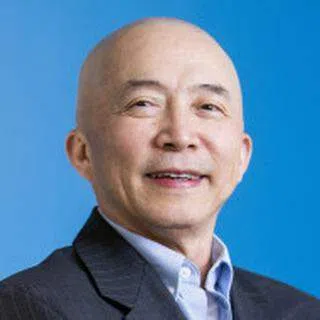

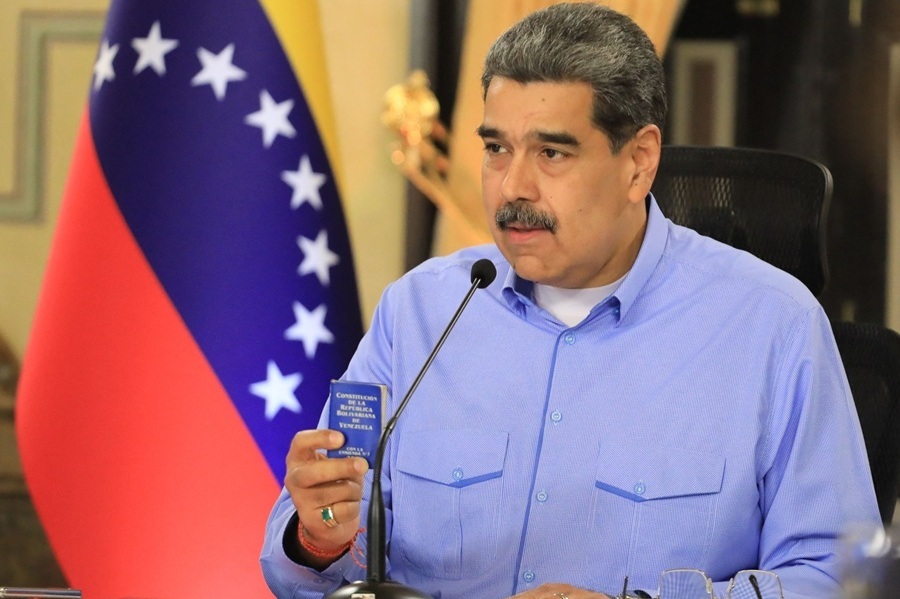
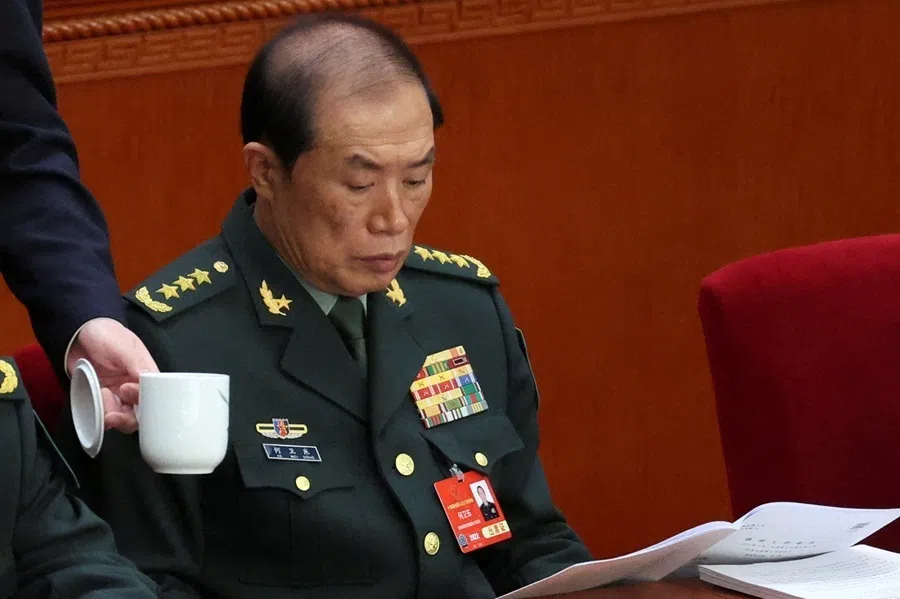
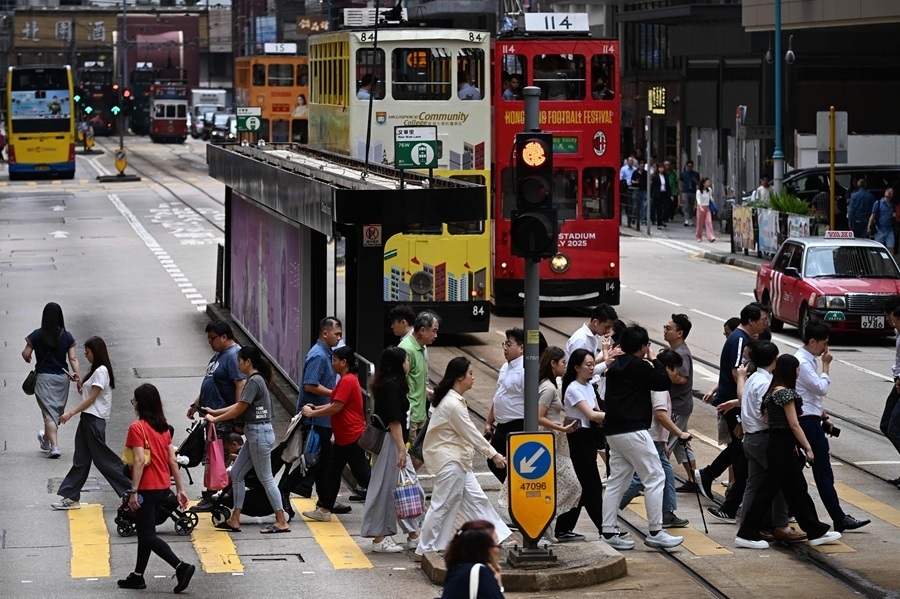
![[Big read] Prayers and packed bags: How China’s youth are navigating a jobless future](https://cassette.sphdigital.com.sg/image/thinkchina/16c6d4d5346edf02a0455054f2f7c9bf5e238af6a1cc83d5c052e875fe301fc7)